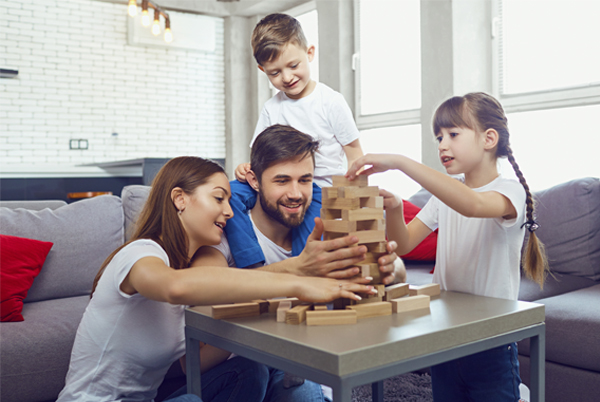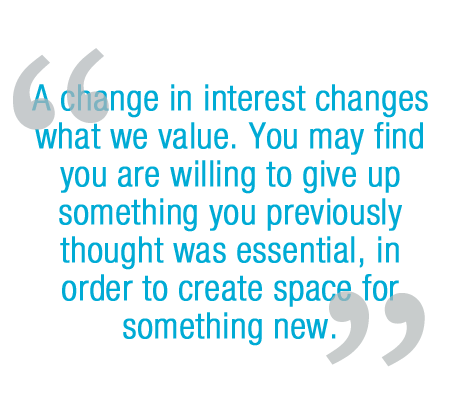By Sheila Walkington, co-founder and CFO Money Coaches Canada
 It’s been almost six months since phrases like; shelter-in-place, work from home, physical distancing, and social bubbles, have become part of the daily conversation. Wearing a mask in public started out feeling odd, but for most of us it’s become routine. But our ability to adapt doesn’t mean that anything about the COVID-19 pandemic has been easy.
It’s been almost six months since phrases like; shelter-in-place, work from home, physical distancing, and social bubbles, have become part of the daily conversation. Wearing a mask in public started out feeling odd, but for most of us it’s become routine. But our ability to adapt doesn’t mean that anything about the COVID-19 pandemic has been easy.
I think it is safe to say that every Canadian has been affected by this virus; physically, mentally, or financially. For the first few months we were all trying to get our equilibrium back; people were out of work, others were working from home, students were learning online, and only essential services were open. Life was very much about the present moment, and what would happen tomorrow. Most long term goals and plans were placed on hold.
But as we look for solid footing in this new normal, many Canadians are thinking a lot about the future and whether the things they valued only a few short months ago are the things they value today. And when your values change, very often your financial goals and priorities change along with them.
So what should you do?
Take time to reflect
No one among us has ever experienced a pandemic of this magnitude. Seemingly overnight the country shut down and normal life stopped. The life that took its place was, and still is, different for everyone. As most of the country is in some version of a stage three reopening, it’s time for us as individuals to reflect on what we want or need going forward.
Here are just a few questions to get you started;
- Did you feel financially vulnerable or financially secure (at least temporarily) when lockdown occurred?
- However your work was (or wasn’t) affected, how does it make you feel about your work going forward?
- Aside from the stress caused by COVID-19, in general, were you more or less stressed? Why?
- What were your biggest challenges?
- Were there any benefits financially or otherwise, to the new situation? What were they, and will you be able to maintain them when things return to “normal?”
 Everyone got through lockdown in their own way, so everyone will have different takeaways. There is still uncertainty ahead, such as a possible second wave, but now is still a very good time to look at your goals. You can set a new plan in motion, based on revised values, even if for the moment your steps are small.
Everyone got through lockdown in their own way, so everyone will have different takeaways. There is still uncertainty ahead, such as a possible second wave, but now is still a very good time to look at your goals. You can set a new plan in motion, based on revised values, even if for the moment your steps are small.
Here are some of the fresh opportunities and new perspectives I have talked about with clients.
Retirement goals
I’m seeing people re-evaluating their retirement goals, many with hopes to retire earlier. Time away from their regular routine has made the idea of owning their time sooner more appealing. So has the realization of how quickly life can change, encouraged them to not put off their retirement dreams longer than necessary.
Some people have been inspired by how much money they have saved by not eating out, or going to events and movies. Money saved on wants that they thought were needs, has shown people that if they continue to save in those areas, even when those options are available again, they can put more away for the future and retire sooner.
How and where they work
Working from home for the long term has shown to be a viable option for many people. Some companies, like Shopify, have been in the news for talking about having employees work from home permanently.
This shift has a ripple effect on what people need in their homes (space, privacy, and office furniture) and where that home is. If you aren’t commuting, you may be able to live somewhere further out of town.
I have clients who have always wanted to live in a smaller town but were kept in the city for work. With work-at-home options now available to them, they are exploring the surrounding areas on the weekends and imagining new possibilities for where they can live. In some cases, a move out of town can mean owning a comparable, or even larger home, with a smaller mortgage.
Working from home also comes with cost savings on gas and parking or transit fees. There would likely also be savings on wardrobe, dry cleaning, lunches out, and daily incidentals. Savings that can now go to things of greater personal value; travel (when we are allowed), hobbies, home renovations, or education and retirement plans.
Career change or enhancement
 In a culture where people are perpetually busy, there isn’t always head space to think about what we really want from our work/life balance. But suddenly, the busy population had nowhere to go. At the same time, health care workers and essential services employees were working in high stress conditions, especially in the early days when so little was understood and cases were on the rise.
In a culture where people are perpetually busy, there isn’t always head space to think about what we really want from our work/life balance. But suddenly, the busy population had nowhere to go. At the same time, health care workers and essential services employees were working in high stress conditions, especially in the early days when so little was understood and cases were on the rise.
It was a situation that allowed many people to have a long think about what they really want from their career. Some people found they want less stress, or more challenge, or higher pay. I’ve talked to several clients who have new career goals.
I spoke to a teacher who intends to do her Master’s degree in counselling and become a school counsellor. I have another client who is taking an online MBA class because he finally has some time.
Taking courses can improve career opportunities. Self-employed workers are also taking courses that will enhance their skills and allow them to charge more for their services.
Creating peace-of-mind
We can all get complacent with the status quo and put off doing things we know we need to do. But the swiftness of change when this pandemic hit was a very real reminder that there are important things we need to do for peace-of-mind.
I see greater interest in building emergency funds. This doesn’t have to be as hard as it seems, just getting into the habit of putting money aside each month is a great start no matter how much you can afford. It will build over time.
I’ve also seen clients reroute money from activities that are on-hold into paying down credit debt. A client in Ottawa became debt free (aside from a mortgage) for the first time in years. It’s a great feeling that she and her husband plan to hold onto going forward.
Other peace-of-mind actions are making sure you have an up-to-date will, and sufficient life and health insurance coverage, to protect yourself and your family.
Changed Interests
The pandemic changed our options. International travel was off the table. Working out was no longer possible at the gym. Dining out was reduced to take-out and picking up our favourite coffee on-the-go didn’t have the same allure now that we weren’t really going anywhere. Plus, we suddenly had more time, even with homeschooling and working from home, many had more time and fewer choices.
 So we came up with new options. People started baking bread, cooking more elaborate meals, using workout apps, and shopping online for craft supplies. They were getting curbside pick-ups of home improvement items and making their homes and yards more inviting. Families were pulling out board games and puzzles. The neighbourhood streets were full of people out walking and nodding to each other from a safe distance.
So we came up with new options. People started baking bread, cooking more elaborate meals, using workout apps, and shopping online for craft supplies. They were getting curbside pick-ups of home improvement items and making their homes and yards more inviting. Families were pulling out board games and puzzles. The neighbourhood streets were full of people out walking and nodding to each other from a safe distance.
Things have changed a bit as we move into stage three, and it feels good to have at least a few of our old liberties returning, but many people have found that they like some of the changes and want to keep them in their life. For example;
- Working-out from home, and saving money and time not going to a gym.
- Taking local road trips and rediscovering their community
- Cooking as a couple or family instead of going to restaurants
- Continuing a newly discovered or reawakened hobby
- Making space for more personal, couple and family time
A change in interest changes what we value. You may find you are willing to give up something you previously thought was essential, in order to create space for something new.
So what about you?
Do any of the things I’ve mentioned above resonate with you? If so, you’ll want to take some time to re-evaluate your financial plan so that it supports your new goals.
If you are in a relationship this is something you should do with your partner. And it’s important to really listen to each other because everyone will have been affected differently by this crisis. Even couples who have always been on the same page with their goals may find that they are suddenly out of step with each other. Some people really crave security right now, and others are excited about pursuing new opportunities like a career change.
 When couples find themselves with disparate priorities, it can be tough to bridge the gap. That is often the time when they will turn to an impartial advisor like a Money Coach to help them find solutions that consider both persons’ needs. Often understanding the “why” behind your partner’s goal can make it far easier to get on board with supporting it. And supporting each other’s goals is always the ideal; each partner should feel heard and respected.
When couples find themselves with disparate priorities, it can be tough to bridge the gap. That is often the time when they will turn to an impartial advisor like a Money Coach to help them find solutions that consider both persons’ needs. Often understanding the “why” behind your partner’s goal can make it far easier to get on board with supporting it. And supporting each other’s goals is always the ideal; each partner should feel heard and respected.
If you have children, especially older ones, they should also be involved in some of the talks about priorities and goals. Kids who were in many activities before the pandemic may have enjoyed a slower pace in their life as well, and maybe they don’t want to go back to the old normal. Or possibly, if the family has suffered some pay loss, some activities may no longer be possible when things return to “normal.” Costs for hockey, dance, school trips etc. are often some of the biggest expenses a family carries.
When setting or revising your goals remember to honour what is important to you and your family and not to get caught up in what other people are doing. Maxing out their TFSA may be what’s right for your friend, but it may not make sense within your goals. It’s best to look inward rather than outward when making financial plans. If your goals are meaningful to you, you have a far better chance of making them a reality.
If you need help, we’re here for you.


